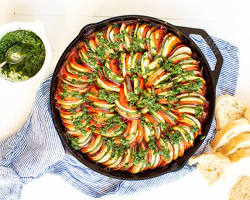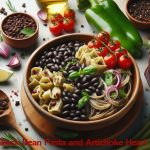Eating seasonal produce allows you to receive the most nutrients from your meals while also supporting local farmers and lowering your environmental impact. When you eat in season, you receive fruits and vegetables at their freshest and most flavorful. They are also more likely to be farmed using environmentally friendly methods.
Page Contents
ToggleThere are numerous advantages to eating seasonal vegetable recipes. Here are a few:
Nutritional advantages: Seasonal produce is high in nutrients that are necessary for optimum health. Summer fruits and vegetables, for example, are high in vitamins C and A, but winter veggies are high in potassium and fiber.
Flavor:Seasonal produce is at its most flavorful when it is in season. This is due to the fruits and vegetables having had enough time to fully develop under perfect growth circumstances.
Affordability: Seasonal produce is frequently less expensive than out-of-season produce. This is due to the fact that it does not need to be carried across great distances or stored for extended periods of time.Sustainability: Eating seasonal vegetables helps to lessen your environmental effect.
Here are some suggestions for incorporating more seasonal food into your diet:
1.Visit your neighborhood farmers’ market. This is an excellent method to find fresh, seasonal produce cultivated locally.
2.Look for cookbooks and websites that specialize in seasonal cooking. These resources might provide you with ideas for seasonal dishes.
3.Plan your meals according to the seasons. This entails generating a list of seasonal fruits and vegetables and then organizing your meals appropriately.
To get you started, here are a few recipes:
Summer Vegetable Ratatouille
This famous French meal is made with eggplant, zucchini, bell peppers, tomatoes, onions, and garlic. It’s an excellent way to utilize a variety of summer vegetables.

Grilled portobello mushroom burgers
These substantial burgers are an excellent substitute for beef burgers. They’re high in flavor and nutrition.

Roasted vegetable quinoa bowl
Made with roasted veggies, quinoa, and a choice of toppings, this healthful and filling bowl. It’s an excellent method to receive a range of nutrients in a one meal.

Winter squash soup
Winter squash, apples, and spices combine to make this creamy soup. It’s a soothing and warming dish that’s ideal for a cold winter day.

Consuming seasonal vegetables is an excellent way to enhance your health, support local farmers, and lower your environmental impact. So, the next time you go food shopping, seek for seasonal fruits and veggies. Both your taste senses and your body will be grateful!
Additional seasonal produce consumption tips:
1.Keep a list of seasonal food on your fridge or phone for easy access when grocery shopping.
2.To help you plan your meals, use a seasonal produce calendar.
3.Make your recipes adaptable. If a certain vegetable is out of season, a comparable vegetable can often be substituted.
4.Experiment with different recipes. There are many excellent seasonal produce recipes available.
It’s simple to add more seasonal food into your diet with a little forethought. So, what are you holding out for? Begin experiencing the season’s fresh flavors today!
As an Amazon Associate I earn from qualifying purchases.



1. Cut the veg into pieces to ensure even cooking.2.To help the vegetables steam, add a little liquid to the pot.3.Season to taste with salt and pepper.4.Serve right away.